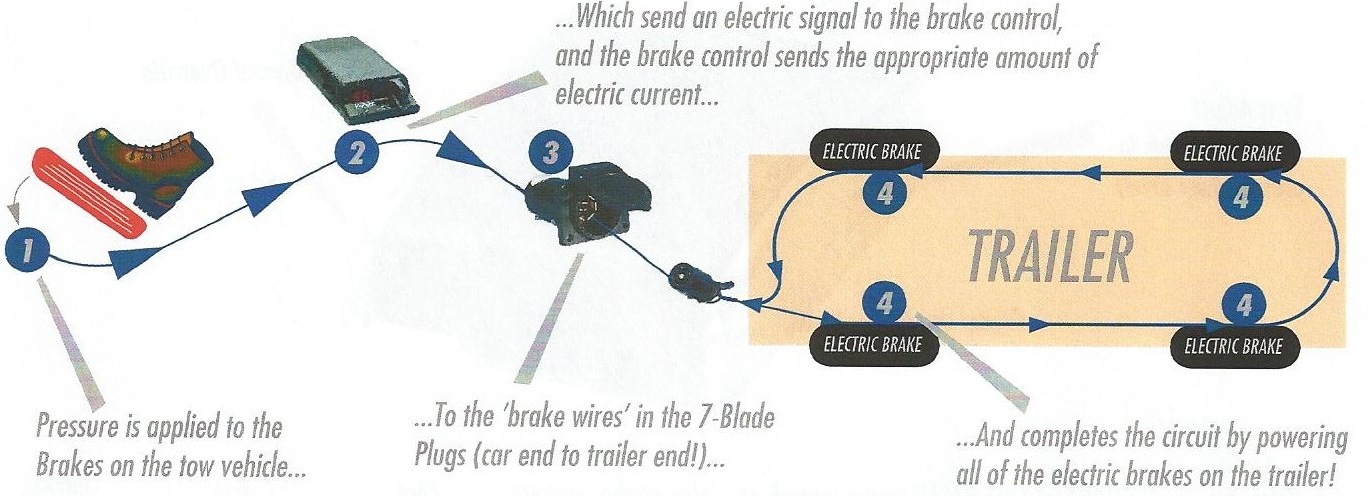
Controlled braking is the technique of applying a vehicle’s brakes as hard as possible without locking the wheels, allowing for effective speed reduction without losing control. This method involves squeezing the brakes firmly to slow down without causing the wheels to lock up, ensuring optimal braking efficiency and safe deceleration.
Controlled braking plays a crucial role in safe driving practices by enabling drivers to reduce speed quickly while maintaining control of the vehicle. It requires a delicate balance between applying enough pressure to slow down effectively without risking skidding or loss of control.
By mastering controlled braking techniques, drivers can enhance their ability to navigate various road conditions and respond to sudden hazards promptly. Understanding and implementing controlled braking can significantly improve driver safety and overall road awareness.
Navigate As You Want:
Understanding Controlled Braking
Controlled braking is a crucial technique in driving, defined as the process of applying brakes to slow or stop quickly without locking them. It differs from stab braking, which is used in emergency situations, as controlled braking does not involve intentional locking of the brakes. A brake controller, an electronic device, plays a key role in activating and controlling the electric brakes of a trailer. When using controlled braking, it is important to apply the brakes as hard as possible without locking the wheels, keeping steering wheel movements minimal. This method ensures a vehicle can reduce speed rapidly while maintaining control. Understanding and mastering controlled braking is essential for safe and efficient driving.

Credit: slideplayer.com
How Does Controlled Braking Work?
|
Controlled Braking: Applying brakes firmly without locking to reduce speed quickly and maintain control. Explanation: The method involves pressing the brake pedal hard but without causing the wheels to lock up. This technique allows the driver to slow down rapidly while still steering the vehicle effectively. Benefits: Controlled braking helps to prevent skidding and loss of control during emergency braking situations. It ensures safer and more efficient deceleration without compromising vehicle stability. |
The Role Of A Brake Controller
Controlled braking refers to the technique of applying the brakes with maximum force without causing the wheels to lock up. It allows for quick deceleration while maintaining control of the vehicle. A brake controller is an electronic device that helps activate and control the electric brakes of a trailer.
| Definition and Function of a Brake Controller: A brake controller is an electronic device that activates and controls the electric brakes of a trailer. |
| Components of a Brake Controller: It consists of an interface in the cab for the driver to control and the central part that activates the trailer’s brakes. |
| How Brake Controllers Work: Brake controllers work by allowing the driver to regulate the braking force applied to the trailer, ensuring safe and controlled braking. |

Credit: www.hitchweb.com
Techniques For Controlled Braking
Controlled braking is a technique that involves applying the brakes as hard as possible without locking the wheels. It is important to keep the steering wheel movements small while using this method. If larger steering adjustments are needed or if the wheels lock, it is necessary to release and reapply the brakes as quickly as possible to regain control. Another method for controlled braking involves slightly tapping the brakes, allowing for a smoother and more gradual reduction in speed. In contrast, firm and steady pressure on the brake pedal is also utilized to slow down the vehicle without intentionally locking up the brakes. These techniques are crucial for maintaining control of the vehicle while reducing speed efficiently in various driving situations.
Importance Of Controlled Braking
Controlled braking is an important technique that enhances vehicle control and safety. It involves applying the brakes in a way that allows the vehicle to slow down or stop quickly without locking the wheels. This technique is crucial for keeping the vehicle in a straight line, ensuring optimal steering control. When using controlled braking, it is essential to apply enough pressure to slow down the vehicle effectively, but not to the extent of intentionally locking up the brakes. By using controlled braking, drivers can maintain stability and prevent skidding or loss of control. It is important to keep in mind that while using controlled braking, steering wheel movements should be kept minimal to avoid any loss in control. Overall, controlled braking is a valuable skill that every driver should master to ensure their safety and the safety of others on the road.

Credit: slideplayer.com
Frequently Asked Questions Of What Is Controlled Braking
What Is Controlled Braking In Driving?
Controlled braking in driving involves applying firm, steady pressure on the brakes without locking the wheels. This technique allows for quick and safe slowing or stopping, helping to maintain control of the vehicle. It’s essential for emergency situations and preventing skidding.
What Is The Difference Between Stab Braking And Controlled Braking?
Stab braking is for emergencies; to quickly lock and release brakes. Controlled braking slows without intentional locking.
What Are Control Brakes?
Control brakes are electronic devices that activate and regulate a trailer’s electric brakes for safe towing.
What Is Controlled Braking Quizlet?
Controlled braking is a technique of applying brakes to slow down quickly without locking the wheels, maintaining control of the vehicle. It involves firm, steady pressure on the brake pedal. This method helps in reducing speed without losing control, especially in emergency situations.
Conclusion
Controlled braking is a vital technique that allows you to slow down or stop quickly without locking your brakes. By applying even pressure, you maintain control of the vehicle and ensure safe driving. Understanding and mastering this method can significantly enhance your driving skills, promoting road safety for everyone.




